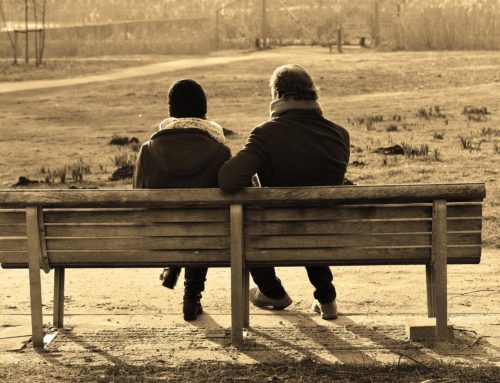Anxiety may be defined as a state of unease, foreboding, dread and nervousness that can affect our thinking, feeling, and judgment. Everyone experiences it from time to time, but anxiety can become a person’s default emotional state. When anxiety stays in a person’s life day after day, it causes serious psychological distress which leads to an anxiety disorder[1].
There are five kinds of anxiety disorder:
Generalized Anxiety Disorder
Generalized Anxiety Disorder, GAD, is daily, unrelenting anxiety, elevated worry, and physical and emotional tension, even though there is nothing to worry about. The person with GAD will focus briefly on one potential disaster after another, even if nothing bad comes about. Sometimes their physical and emotional perception of impending doom exists with seemingly nothing to provoke or sustain it.[2]
Panic Disorder
Panic disorder involves chronic episodes of intense, unexpected fear that overwhelms the individual. Along with fear comes physical symptoms that can include heart palpitations, severe chest pain, shortness of breath, hyperventilation, dizziness, and fainting. A person with panic disorder typically feels as if they are dying or in imminent danger of dying.[3]
Obsessive-Compulsive Disorder (OCD)
Obsessive-Compulsive Disorder, OCD, is characterized by recurrent, intrusive and unwanted thoughts called obsessions and/or repetitive behaviors (compulsions). People with OCD perform these repetitive behaviors such as counting, checking, handwashing or cleaning sometimes as a means to make obsessive thoughts stop. These behaviors become ritualistic and provide only temporary relief.[4]
Social Phobia (or Social Anxiety Disorder)
Social Phobia, or Social Anxiety Disorder, causes overwhelming and debilitating self-consciousness and in daily, mundane social situations. Some people with social phobia experience it only in a highly specific situation, like public speaking, or eating in the presence of other people. Some people experience such a degree of social anxiety that being around other people in any circumstance can be incapacitating. [5]
Post-Traumatic Stress Disorder (PTSD)
Post-Traumatic Stress Disorder, PTSD, develops after terrifying, horrific event, process or ordeal that involves serious physical harm, either in actuality or threatened. Traumatic events that most often cause PTSD include combat in the military, disasters, and physical assaults, including rape.
Anxiety disorders respond well to a comprehensive treatment approach of psychotherapy, medication, and home care. Some people may not need medication at all; anxiety disorders range from mildly bothersome to completely incapacitating. Therapeutic interventions are tailored to meet the specific needs of each individual.
If you or a loved one are experiencing symptoms of an anxiety disorder, seek help from your local Spokane health care professional. Reach out to Damaris through her contact page or calling 509-342-6592.
[1] https://www.hhs.gov/answers/mental-health-and-substance-abuse/what-are-the-five-major-types-of-anxiety-disorders/index.html
[2] https://www.nimh.nih.gov/health/statistics/generalized-anxiety-disorder.shtml
[3] https://www.nimh.nih.gov/health/trials/panic-disorder.shtml
[4] https://www.nimh.nih.gov/health/topics/obsessive-compulsive-disorder-ocd/index.shtml
[5] https://www.nimh.nih.gov/health/statistics/social-anxiety-disorder.shtml






